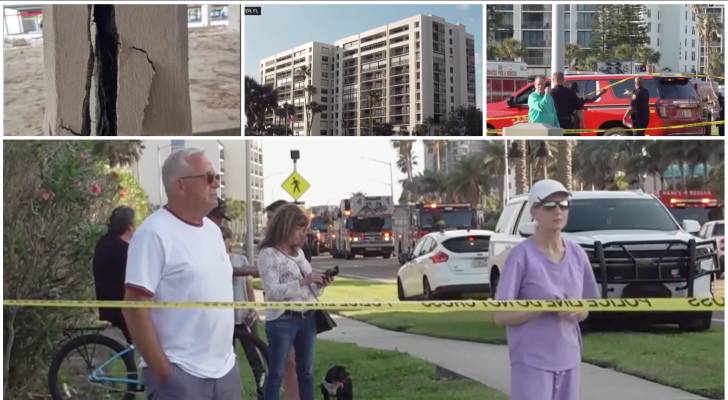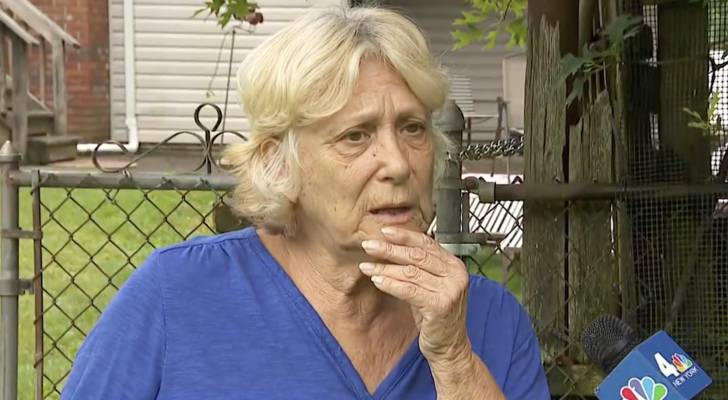Florida firefighters rushed to evacuate 60 residents from high-rise after a massive crack was spotted in one of its columns — why the state still faces safety challenges post-Surfside


In early May, construction crews working in the parking garage of South Beach III Condominiums in Clearwater, Florida, spotted a "several‑foot‑wide crack” in a concrete support pillar. As CBS News reports, they immediately flagged the structural concern, eager to prevent another tragedy like the 2021 condo collapse in Surfside, Florida, which killed 98 people. Within two hours, […]
‘It’s a big win’: Florida’s Ron DeSantis signs 2 new laws to stop squatters from taking over hotels, restaurants and businesses — but is squatting really that big of an issue in the US?
Florida Governor Ron DeSantis recently signed two new laws protecting commercial property owners from squatters. These laws are part of the state’s broader effort to crack down on unauthorized occupancy and strengthen private property rights. Don’t miss I’m 49 years old and have nothing saved for retirement — what should I do? Don’t panic. Here […]
California woman suing Costco for $14M after she says a liquor cabinet display fell on her, leaving her with serious injuries — what to know if you’re ever injured due to a store’s negligence


A woman in Santa Rosa, California, is taking legal action against Costco, seeking more than $14 million in damages after she says a display cabinet fell on her and caused lasting injuries. The lawsuit, filed by Sadie Novotny, stems from a March 22 incident at the local Costco warehouse. Court filings reviewed by ABC 7 […]
This Chicago couple was locked out of their home for a month after a strange woman moved in her family, pet dog — and they nearly had to take the squatter to court to get their home back


Marcia and Carlton Lee’s month‑long property nightmare on Chicago’s South Side is finally over. The couple have reclaimed their vacant house — one they’re trying to sell — after police arrested and removed a stranger who moved in with her family, with paperwork to suggest she owned it. "I knew the ID was fake," Marcia […]
Texas just signed a new law against ‘jugging’ to protect people who carry cash — here are the brazen crimes happening nationwide that forced lawmakers to act


In the surveillance footage, a car holding a wad of cash fresh from the bank pulls into a convenience store on Houston’s Telephone Road. Within seconds, two vehicles pull up. Thieves jump out, smash windows on both sides of the victim’s car, grab the cash and drive away. Don’t miss I’m 49 years old and […]
‘She’s dangerous’: Judge bans San Diego woman from her former home after 2 suspicious fires and $200K insurance payout vanishes — neighbors say hoarding, threats and chaos went on for years


A San Diego judge has ordered Lisa Golden to stay at least 100 yards away from her Ocean View Hills home after two suspicious fires and the disappearance of a $200,000 insurance payout reports CBS 8 San Diego. Neighbors say the home on Mariner Drive has been a source of stress and fear for years […]
Cole Schmidtknecht, 22, died after the cost of his asthma inhaler jumped from less than $70 to over $500. Now, his parents are fighting to change the system they say let their son die


When 22-year-old Cole Schmidtknecht went to Walgreens to refill his asthma inhaler in 2024, he was shocked to learn that the price had jumped from less than $70 to more than $500, according to NBC News. The preventative inhaler Cole’s doctor prescribed him, Advair, was no longer covered by his insurance. Cole left with only […]
‘These texts were like a drug’: Montana woman says she lost $90K in online romance hoax — and the FBI warns more and more Americans are now falling for these scams


A Montana woman, identified only as Rita, lost more than $90,000 in an online romance scam. She shared her story in a video created by the FBI on June 15th, World Elder Abuse Day, hoping to help others recognize the signs before it’s too late. In 2024, Rita was going through a divorce and feeling […]
‘Those folks that were involved… will be held accountable:’ A scammer stole $800K from a Florida school board by faking a vendor email. Here’s how to avoid the same trap


A scammer pretending to be a construction vendor tricked the Citrus County School Board in Inverness, Florida, into sending more than $800,000 to the wrong bank account. The fraud wasn’t discovered until the real vendor called to say they hadn’t received their payment. According to the Citrus County Sheriff’s Office, $846,864.86 was intended for a […]
New Jersey residents fear losing their ‘slice of heaven’ amid city’s plans to build new pickleball and tennis courts with no parking — here’s how to say your piece when your peace is at risk


Edison Woods Park is tucked away in a quiet residential pocket of Edison Township, New Jersey. It’s so quiet that many locals don’t even know it’s there, and residents who live around the park say that’s exactly why they love it. “It’s our little slice of heaven,” one neighbor told NBC 4. Now, residents are […]
